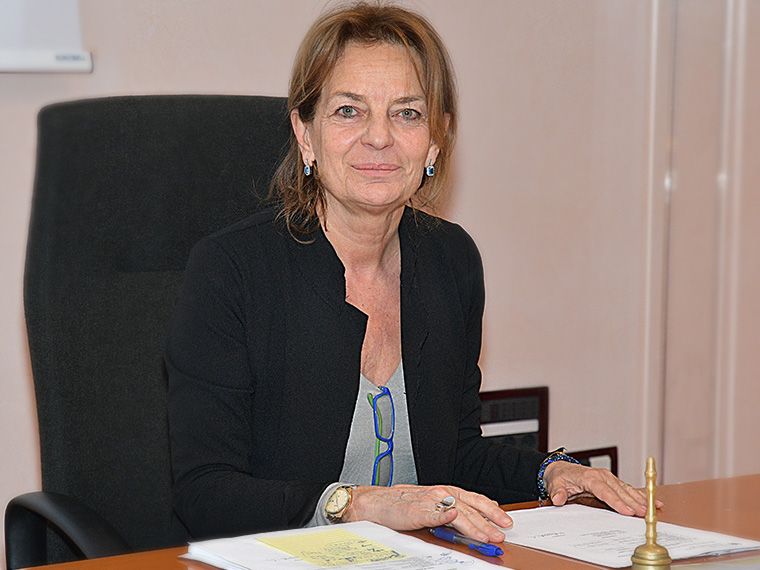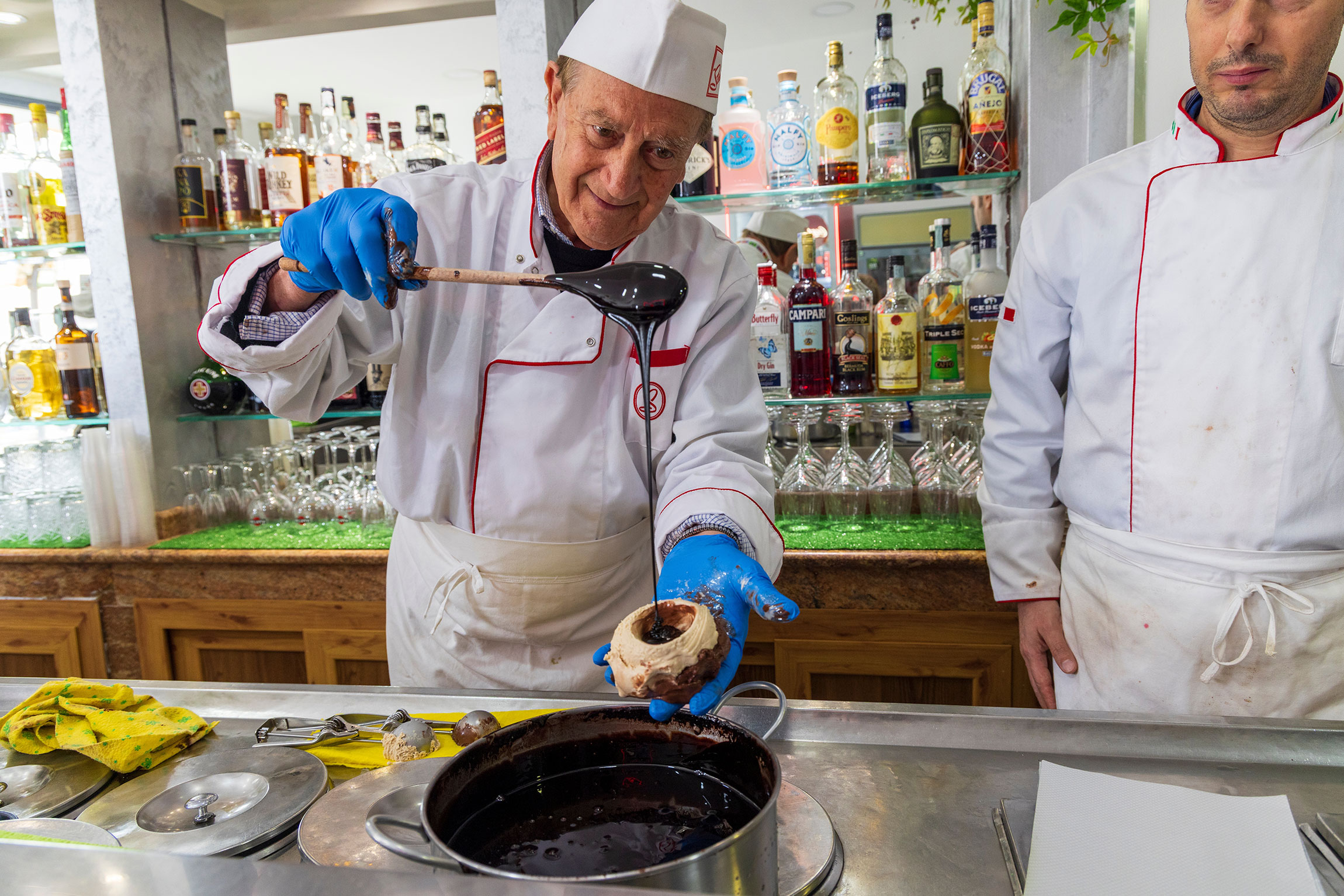The American Studies Association of Italy (AISNA – Associazione Italiana di Studi Nord-Americani) – that fosters exchange and debate in the fields of North American literature and language, history, politics, society, cinema – is in very good hands.
In fact, Elisabetta Vezzosi, full professor of North American history at the University of Trieste (capital of the autonomous region of Italy, Friuli-Venezia Giulia), has dissected far and wide the phenomenon of immigration, that certainly shaped the past of the United States, and, in the era of globalization and free mobility, shall keep informing its present and its future.
Let’s not forget that, as Cicero told us in his De Oratore, “History is life’s teacher.” Nothing good can come out of provincialism and marginalization.
Please, introduce yourself. What is your cultural background and how did you develop your interest in delving into the history of USA and their institutions?
I am full professor of North American history at the University of Trieste. I am also chair of the PhD in “History of Societies, Institutions and Thought. From Medieval to Contemporary History.”
My passion towards the history of the USA hails from my studies at the University of Florence, where I was a contemporary history major. Above all, I was captivated by the classes taught by Anna Maria Martellone, professor of North American history.
I graduated with my thesis on Italian immigrants, members of the Industrial Workers of the World (IWW), an international labor union active in the US.
Upon graduation, I got a PhD in history and institutions of North America. My doctorate’s thesis dealt with Italian immigrants assembled in the US’ Socialist Party.
I conducted a large part of my researches in the United States themselves. Particularly key to my investigation was the Immigration History Research Center in Minneapolis, back then chaired by Italian-American historian Rudolph J. Vecoli.
Your main fields of study have been the history of Italian political immigration towards North America, and a comparison between welfare policy in Italy and the US. Could you elaborate on both?
My initial studies focused on the relationship between Italian immigrants and US institutions, especially political parties and labor unions. My main scope was to investigate whether, and to what extent, those institutions were places for inclusion and Americanization, or if, even in those contexts, immigrants were marginalized.
As far as my investigation on welfare policies in the US, I focused on agencies, that since early 1900s, have been fighting for women’s and their children’s rights, such as the Children’s Bureau.
The comparative studies dealt particularly with the New Deal, that characterized the 30s in the US, as opposed to Italy’s Fascism.
More recently, I’ve been looking into the internationalist efforts carried on by Afro-American women, as well as the associations that, during the Cold War, mobilized towards the recognition of human rights for soviet scientists, particularly the Committee of Concerned Scientists (CCS).
In your opinion, what are some of the possible scenarios, following today’s closure of the borders by the US Government?
I believe it is utterly wrong for every country to close the borders. In the case of United States, that is even worse because their history, despite many contradictions, has always been resting on the values of reception and tolerance.
Today’s closure of borders represents an unacceptable human rights violation and will lead the USA to bitter internal conflicts, as well as a profound isolation from much of the rest of the world.
What are your main tasks and responsibilities as current President of the American Studies Association of Italy (AISNA, Associazione Italiana di Studi Nord-Americani)? What are the association’s main goals?
My duties, as President of the American Studies Association of Italy (AISNA), consist in being in touch with the Office of Public Affairs, at the US Embassy in Rome, as well as with the universities that currently offer courses in North American history and literature, or where those programs might be introduced. I also coordinate all the activities within the association and foster research and scientific investigation by our members.
The institutional aim of AISNA – a member of the European Association of American Studies (EAAS), and of the International American Studies Association (IASA) – is to promote research, teaching and culture in the field of North American studies in Italy, encouraging transnational collaboration and exchange between our members, scholars and associations all over the world. To this end, AISNA organizes meetings and lectures, also in collaboration with Italian universities and the Center for American Studies in Rome, culminating every other year in an International Conference.
At the moment, AISNA devotes strong attention to young scholars of the Graduate Forum who have an interest in the study of North American literature, history, arts, culture, society and institutions.
Every year, AISNA awards two grants – Premio Lombardo and Premio Caterina Gullì – to the best degree theses on North American topics, discussed the previous year at an Italian university.
Since 2005, AISNA has started a series of interdisciplinary seminars in collaboration with Center for American Studies Association in Rome and the Fulbright Commission. Could you point out for us some highlights in over a decade of cultural debate and exchange?
Those interdisciplinary seminars have been an important point of reference for many young scholars interested in North American studies. Over the years, they have been discussing not only history and literature, but also current affairs and politics.
The last seminar, that intertwined North American culture, history and literature, explored the theme, “The Dominant and the Subaltern.” Scholar Alessandro Portelli gave us a lecture on “Springsteen, work, dreams, and the white working class in the age of Donald Trump.”
Have you ever been to Los Angeles and what’s your opinion of the city?
I’ve been in Los Angeles, in the late 90s. To me, the city and its cultural institutions is a “social lab” of incredible relevance.
I wish to come back soon, so that I can experience first-hand its evolution in the last twenty years.
La American Studies Association of Italy (AISNA – Associazione Italiana di Studi Nord-Americani), che alimenta lo scambio e il dibattito nei campi della lingua e letteratura nordamericana, della storia, della politica, della società, del cinema, è in ottime mani.
Infatti, Elisabetta Vezzosi, professoressa di storia nordamericana all’Università di Trieste (capitale della regione autonoma del Friuli-Venezia Giulia) ha dissezionato in lungo e in largo il fenomeno dell’immigrazione che certamente ha plasmato il passato degli Stati Uniti e, nell’era di globalizzazione e della libera mobilità, continuerà a formare il suo presente ed il suo futuro.
Non dimentichiamo che, come Cicerone ci disse nel suo De Oratore, la “Storia è maestra di vita”. Nessun bene può venire fuori da provincialismo e marginalizzazione.
Quale è la sua formazione culturale e come ha sviluppato il suo interesse nello scavare nella storia di Stati Uniti e delle loro istituzioni?
Sono professore ordinario di Storia nordamericana all’ Università di Trieste. Sono anche direttore del Dottorato in “Storia delle Società, Istituzioni e Pensiero. Dall’età medievale alla storia contemporanea”.
La mia passione verso la storia degli Stati Uniti deriva dai miei studi all’Università di Firenze, dove seguivo storia contemporanea. Soprattutto, fui incantata dalle lezioni di Anna Maria Martellone, professore di Storia nordamericana.
Mi laureai con una tesi sugli immigranti italiani, membri dell’Industrial Workers of the World (IWW), un sindacato internazionale attivo negli Stati Uniti.
Una volta laureata, ho fatto un Dottorato in storia ed istituzioni del Nord America. La tesi del mio dottorato riguardava immigranti italiani riuniti nel Partito Socialista degli Stati Uniti.
Ho condotto gran parte dei miei studi negli Stati Uniti. Particolarmente adatto alla mia investigazione è stato il Centro di Ricerca di Storia dell’ Immigrazione di Minneapolis, allora presieduto dallo storico italo-americano Rudolph J. Vecoli.
I suoi campi principali di studio sono stati la storia dell’immigrazione politica italiana verso il Nord America, ed un confronto tra le politiche di welfare in Italia e negli Stati Uniti. Potrebbe parlarci di entrambe?
I miei studi iniziali si concentrarono sulla relazione tra immigranti italiani ed istituzioni degli Stati Uniti, specialmente partiti politici e sindacati di lavoratori. Il mio scopo principale era di investigare se, e fino a che punto, quelle istituzioni erano luoghi per l’inclusione e l’americanizzazione, o se, anche in quei contesti, gli immigranti furono emarginati.
Nella mia ricerca sulle politiche di welfare negli Stati Uniti, mi concentrai su agenzie che fin dai primi del Novecento, lottavano per i diritti delle donne e dei loro bambini, come la Children’s Bureau.
Gli studi comparati trattavano nello specifico il New Deal che ha caratterizzato gli anni Trenta negli Stati Uniti in opposizione al fascismo in Italia.
Più recentemente, sto guardando agli sforzi internazionalisti portati avanti da donne afroamericane, così come dalle associazioni che, durante la Guerra Fredda, si mobilitarono per il riconoscimento dei diritti umani per gli scienziati sovietici, e in particolare il Committee of Concerned Scientists (Ccp).
A suo parere, quali sono alcuni dei possibili scenari, in relazione alla chiusura dei confini voluta oggi dal Governo degli Stati Uniti?
Io credo che è assolutamente sbagliato, per ogni paese, chiudere i confini. Nel caso degli Stati Uniti, questo è anche peggiore perché la loro storia, nonostante molte contraddizioni, è sempre stata basata sui valori dell’accoglienza e della tolleranza.
L’odierna chiusura dei confini rappresenta una inaccettabile violazione dei diritti umani e condurrà gli Stati Uniti ad amari conflitti interni, così come a un isolamento profondo dal resto del mondo.
Quali sono i suoi principali compiti e le responsabilità come attuale presidente di AISNA, l’Associazione Italiana per gli Studi Nord-Americani? Quali sono i principali obiettivi dell’associazione?
I miei doveri, come presidente dell’Associazione consistono nell’essere in contatto con l’Ufficio dei Affari Pubblici, all’Ambasciata degli Stati Uniti a Roma, così come con le università che attualmente offrono corsi in storia e letteratura nordamericana, o dove quei programmi possono essere introdotti. Io coordino anche tutte le attività all’interno dell’associazione e sostegno la ricerca e l’investigazione scientifica dei nostri membri.
Lo scopo istituzionale di AISNA – membro dell’ Associazione europea di Studi americani (EAAS) e dell’ Associazione internazionale di Studi americani (IASA) – è promuovere la ricerca, l’insegnamento e la cultura nel campo di studi nordamericani in Italia, incoraggiando la collaborazione transnazionale e gli scambi tra i nostri membri, gli studiosi e le associazioni in tutto il mondo. A questo fine, AISNA organizza riunioni e conferenze, anche in collaborazione con le università italiane ed il Centro per gli Studi americani a Roma, che culminano ogni anno in una Conferenza Internazionale.
Al momento, AISNA dedica grande attenzione ai giovani studiosi del Graduate Forum che ha interesse nello studio della letteratura nordamericana, della storia, delle arti, della cultura, della società e delle istituzioni.
Ogni anno, AISNA premia con due borse di studio – Premio Lombardo and Premio Caterina Gullì – le migliori tesi di laurea sul argomenti nordamericani, discussi l’anno precedente in una università italiana.
Fin dal 2005, AISNA ha avviato una serie di seminari interdisciplinari in collaborazione con il Center for American Studies Association e la Fulbright Commission. Potrebbe riassumerci i principali risultati di un un decennio di dibattito culturale e scambi?
Questi seminari interdisciplinari sono stati un importante punto di riferimento per molti giovani studiosi interessati agli studi nordamericani. Durante il corso degli anni, non solo si è discusso di storia e letteratura, ma anche di affari correnti e politica.
L’ultimo seminario, che ha intrecciato cultura nordamericana, storia e letteratura, ha esplorato il tema “Il Dominante ed il Subalterno”. Lo studioso Alessandro Portelli ha tenuto una conferenza su “Springsteen, lavoro, sogni, e la classe operaia bianca nell’età di Donald Trump”.
È stata mai a Los Angeles e qual è la sua opinione della città?
Sono stata a Los Angeles nei tardi anni Novanta. Secondo me, la città e le sue istituzioni culturali sono un “laboratorio sociale” di incredibile rilevanza.
Desidero ritornarci presto, così da poter sperimentare direttamente la sua evoluzione negli ultimi venti anni.




























